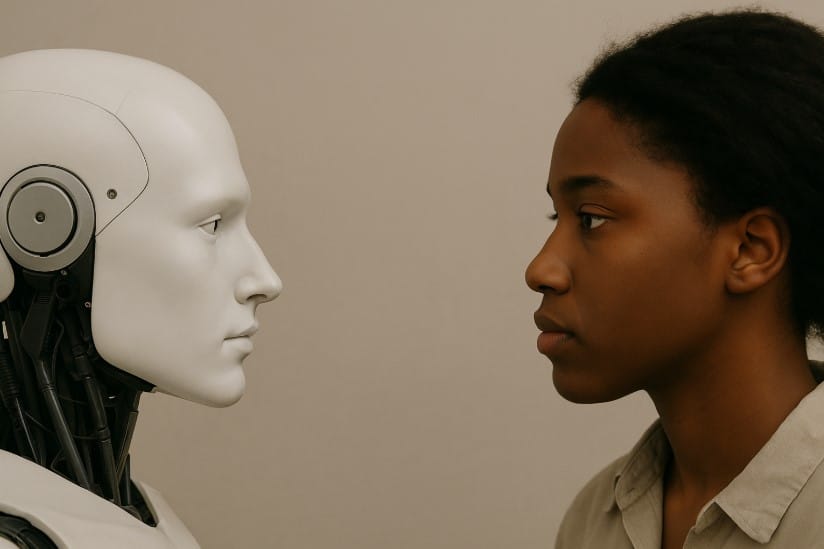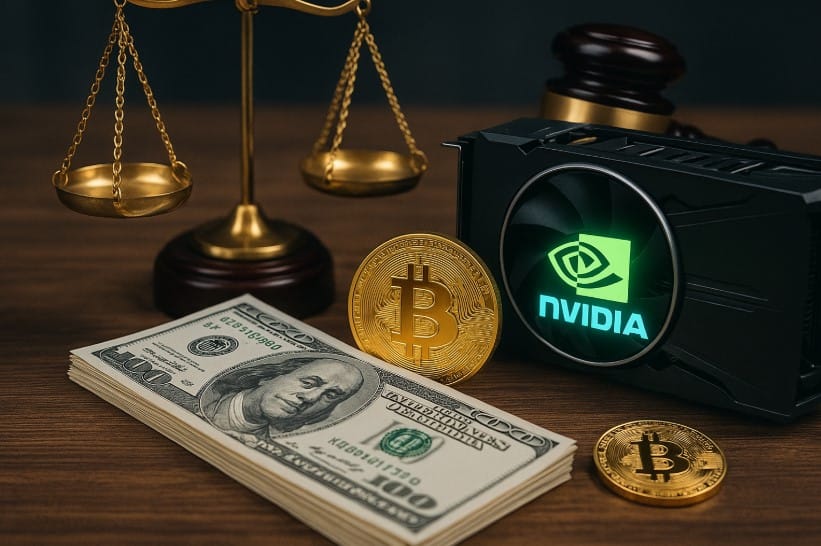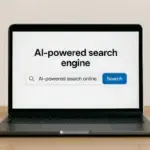Now Reading: AI Ethics Debate: Is NVIDIA Failing Minority Communities?
- 01
AI Ethics Debate: Is NVIDIA Failing Minority Communities?

AI Ethics Debate: Is NVIDIA Failing Minority Communities?
NVIDIA is under scrutiny after reports claim employees raised concerns about AI ethics and bias affecting minority communities.
When AI Misses the Mark
Artificial intelligence is everywhere now, and we give credit to big tech companies like Nvidia. The technology powers your phone, your search results, your music recommendations… even in your toaster, if you’re fancy like that. And when it works well, it feels like magic. But what happens when AI doesn’t get it right? Worse, what if it consistently gets it wrong, especially for certain groups of people?
That’s when things get uncomfortable. And that’s where this story begins.
You’ve probably heard the buzz around AI training lately. Basically, training an AI is like teaching a kid how to think. You feed it tons of examples like photos, words, data and hope it learns patterns to make smart decisions. But just like kids, AIs can pick up some really bad habits if they’re not taught properly. If the training data is biased, incomplete, or lacking in diversity, the AI might end up making decisions that are unfair or even harmful. And that’s not just a bug, it’s a big ethical problem.
Recently, NVIDIA, the same company that’s powering much of the AI boom with its super-powered chips found itself in the middle of a growing debate about AI ethics. Reports have surfaced that some of their own employees tried to raise red flags about potential biases in the AI models the company was working on. These biases, they warned, could negatively affect minority communities.
Now, to be clear, not all of this has been confirmed publicly by NVIDIA. But even the possibility raises serious questions. Like: What kind of voices are being heard (or ignored) during AI development? Who’s making the decisions about what “fair” or “neutral” even looks like?
Here’s the thing: AI isn’t some neutral robot brain. It’s a reflection of our data, our decisions, our blind spots. So, when an AI system fails to recognize darker skin tones in facial recognition, or filters out job applicants with ethnic-sounding names, that’s not just a tech glitch. That’s people being hurt. Invisible. Left out.
We can’t afford to treat AI ethics like a side quest. It has to be central, especially if we’re serious about building a tech future that includes everyone.
Let’s look at what actually happened inside NVIDIA and what employees were trying to say before things hit the headlines.
The Warning Inside NVIDIA
According to recent reports, some employees inside NVIDIA weren’t just watching the AI revolution unfold, they were raising the alarm. These weren’t random outsiders criticizing from afar. These were folks inside the company, people who understood how the tech was being built and where it might be going off the rails.
They reportedly warned CEO Jensen Huang himself that the company’s AI models could be picking up biases—biases that could hit minority communities the hardest. That’s a big deal. Think about it: You’ve got some of the smartest engineers and researchers in the room saying, “Hey, something’s not right here,” and trying to stop a potential problem before it spreads.
But here’s the kicker—it’s still not clear exactly what happened after those warnings were made. Did leadership take it seriously? Were the concerns acted on, or brushed aside? NVIDIA hasn’t released a detailed response on the matter, and that leaves us all guessing. And when it comes to AI ethics, silence only raises more questions.
Let’s be honest, speaking up inside a big tech company isn’t easy. It’s not like popping into a group chat and saying, “Hey, this seems sketchy.” There’s risk involved. It takes guts. So, when employees take that step, it usually means they’ve seen something worth paying attention to.
And to be fair, NVIDIA isn’t the only company facing these kinds of issues. Bias in AI training is a challenge across the board. But NVIDIA holds a unique position of power. Their chips are the backbone of most cutting-edge AI systems today. That gives them influence and responsibility.
If the people building the tools say, “Things could go wrong,” the rest of us should listen. Not to attack, but to ask better questions, demand better answers, and build something better together.
Next, we’ll break down what all this means for real people in everyday life.
What’s at Stake for Minority Communities?
It’s easy to think of artificial intelligence as this big, abstract thing floating around in the cloud. But AI is already making decisions that affect real people, every single day. And when it gets things wrong? The consequences can be deeply personal, especially for minority communities.
Imagine applying for a job and never even getting an interview, not because of your qualifications or experience, but because an AI system flagged your name, your neighborhood, or even the way your résumé is formatted as a “risk.” Or picture a facial recognition system that struggles to identify darker skin tones. That’s not just embarrassing, it’s dangerous. People have been wrongfully arrested because of AI errors. That’s not sci-fi. That’s real life.
And here’s the thing, AI doesn’t wake up and decide to be biased. It learns from the data we feed it during AI training. If that data lacks diversity or worse, if it reflects societal biases, it ends up building those same biases into the system. The AI doesn’t “know” any better. It just reflects what it’s learned.
That’s where companies like NVIDIA come in. Their hardware powers many of the most powerful AI models being used around the world today. So, if the tools trained on their systems are flawed, the ripple effects can be massive.
When minority employees or researchers at a company point out these issues early, it’s like someone yelling, “Hey, the bridge isn’t stable!” before people start walking across it. If we ignore that, people could fall through the cracks literally and figuratively.
This is exactly why AI ethics isn’t just a “tech issue.” It’s a human rights issue. It’s about who gets seen, who gets heard, and who gets left out of a future that’s being built right now. If AI isn’t trained to recognize everyone, then some people will keep being pushed to the margins by code that was never written with them in mind.
The stakes? They’re high. And the time to fix it is right now.
Now, let’s have a look at what AI ethics actually means and why this debate is only just beginning.
Why AI Ethics Matter Now, More Than Ever
Let’s take a step back and talk about something that sounds super technical but really isn’t: AI ethics.
Now, I know “ethics” might bring up flashbacks to high school philosophy class. But don’t worry, we’re not diving into Plato and Socrates here. AI ethics is really just about one simple thing: doing the right thing when building and using artificial intelligence.
That includes asking tough but important questions like:
- Is this AI treating everyone fairly?
- Are we testing it on all kinds of people, not just a narrow group?
- Could it unintentionally harm someone?
See? No fancy degree needed, just good ol’ common sense.
The reason AI ethics matters more now than ever is because AI isn’t in the lab anymore. It’s not just a research project. It’s in hospitals, schools, hiring systems, banking apps, you name it. And the faster it spreads, the faster we need guardrails in place to make sure it’s working for everyone, not just a lucky few.
Companies like NVIDIA, with their tech at the center of this boom, are in a unique spot. Their chips are the engines behind some of the most powerful AI systems on the planet. That gives them a responsibility not just to innovate, but to think deeply about what kind of future they’re helping shape.
And here’s something important: ethics isn’t about slowing down progress. It’s about smart progress. Think of it like building a high-speed train. You still want it to go fast, but you also want brakes, seatbelts, and tracks that don’t randomly disappear under certain people’s feet. That’s not overkill, that’s how you keep everyone safe on the ride.
When insiders raise concerns, like some NVIDIA employees reportedly did, that’s not drama, it’s a sign of a company culture that has the chance to grow. A good ethics process listens, adjusts, and improves. A bad one? It ignores the red flags until it’s too late.
The bottom line is this: AI ethics isn’t optional anymore. It’s essential and the companies that embrace it early are the ones we’ll trust with tomorrow.
Finally, let’s talk about what needs to happen next and how we can all play a part.
The Road Ahead: Accountability in AI Training
So where do we go from here?
First off, let’s be clear: the AI train isn’t slowing down anytime soon. It’s powering everything from customer service bots to self-driving cars and NVIDIA is one of the key companies driving that train. But speed isn’t the only thing that matters. Direction does too. And right now, we need a serious course correction toward accountability.
That means listening to the people inside companies who are raising the red flags. It means putting real effort into making AI training more inclusive, diverse data, diverse voices, diverse perspectives. Because if your AI doesn’t understand the full range of human experience, can it really be called “intelligent”?
Companies like NVIDIA have a chance to lead here, not just with tech, but with values. And honestly, leadership isn’t just about chips and profits. It’s about saying, “We hear you. We see where we messed up. And we’re going to do better.” That’s how trust is built.
And for the rest of us? We’ve got a role too. Ask questions. Stay curious. Don’t let the tech talk scare you off. The more we all understand what’s under the hood, the better we can push for fair, ethical AI that works for everyone.
Because AI ethics isn’t just a conversation for engineers in lab coats. It’s for all of us, the teachers, the students, the parents, the gamers, the creators. We’re all riding this wave, so let’s make sure it’s heading somewhere good. Want to learn more? Speak up? Or just share your thoughts? Drop a comment below or connect with us, your voice matters in shaping the future of AI.















